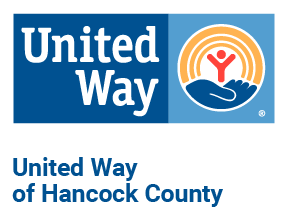Getting Further Ahead: Living Better with What You Have, a collaboration between Findlay Hope House and The University of Findlay’s Occupational Therapy department, received $8,400 from the Halt Hunger Initiative grant pool in 2015 due to its alignment with the Initiative’s fourth goal to educate and equip individuals to be food secure. Of the funds granted in 2015, $4,200 was not used and was requested to rollover to 2016 funding.
This occupation-based program emerged from conversations with current and former participants of Hope House’s Getting Ahead class, a component of Bridges Out of Poverty. Their experiences and direct input helped drive the development of the program. Program goals include: exploring skills and resources which could decrease food insecurity or the susceptibility to become food insecure; developing identified skills in order to maximize the use of food resources; enabling practice of learned skills within the participant’s natural context in order to encourage transfer of skills and abilities; empowering each participant to guide his/her progress within the program and contribute to the growth of others; enhancing the community by embracing a collaborative approach to program implementation.
The program targets Getting Ahead graduates living in Hancock County and is led by Dr. Laura Schmelzer and Dr. Teresa Leto of The University of Findlay’s Occupational Department. Seven, three-hour sessions span over seven weeks and includes an assessment of the individual’s needs. Once the assessment is complete a personalized program is created based on each participant’s current knowledge, skill level, and stated goals. Each session contains both educational and experiential activities and focuses on content aimed at assisting the participants to maximize their food resources. The program has been held four times since June of 2013 and success is measured using pre and post testing via the Making Meals Performance Measure and a modified version of the Canadian Occupational Performance Measure (COPM).
Current program outcomes indicate that participants were able to use available food items to create an average of six more meals after program completion. Other outcomes included: increased ability to create more complex meals, enhanced knowledge regarding the use or storage of leftovers, the ability to substitute ingredients, make healthier meals and create and use a grocery list. Each of these tasks can improve an individual’s ability to maximize food resources and decrease food insecurity. Program outcomes were recently shared at the National Bridges Out of Poverty Conference.
Another session is being planned for 2016. To learn more about this program contact Dr. Laura Schmelzer at Schmelzer@findlay.edu or Angela Crist at acrist@findlayhopehouse.org.
About the Halt Hunger Initiative:
United Way’s Halt Hunger Initiative works to mobilize the community and research, identify and promote long-term solutions to Hancock County's hunger problem. For more information about the work of United Way or the Halt Hunger Initiative visit http://LiveUnitedHancockCounty.org or contact the office at 419-423-1432.
About United Way of Hancock County:
Although it is a global organization, each United Way is locally governed and focuses on improving lives in each individual community across the country and the world. The mission of United Way of Hancock County is to “measurably improve people’s lives in Hancock County.”
Since its inception in 1955, the organization has gone from doing fundraising for a handful of organizations to partnering with hundreds of programs and services through local nonprofit organizations. Over the past 60 years, United Way of Hancock County has raised more than $76 million dollars for programs and services. Not only does the organization fundraise, but staff members and volunteers are deeply involved in many community committees, collaborative projects and are partnering with other community organizations to address the root causes of social issues in Hancock County.
Today, United Way of Hancock continually works toward a community where all individuals and families achieve their human potential through education, income stability and healthy lives. The organization strives for a community that fosters hope and opportunity for everyone.
